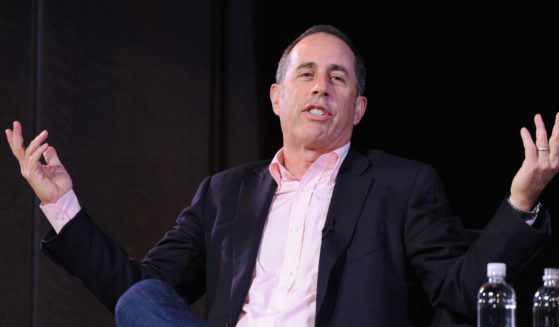Riding populist wave, Finns Party nearly wins Finland vote
HELSINKI (AP) — Riding a wave of populism across Europe and campaigning to slow down Finland’s efforts to fight climate change, the euroskeptic Finns Party came within 6,800 votes of winning the country’s parliamentary election — a result that smashed even the party’s own predictions.
One newspaper headline read “An all-time election thriller.”
The result of Sunday’s vote has the potential to upend politics in Finland, a European Union member of 5.5 million people that shares a long border with Russia and has one-third of its land above the Arctic Circle.
It also highlighted the struggle by Europe’s traditional political parties to retain supporters. For decades, the centrist Center Party, the conservative National Coalition Party and the left-leaning Social Democrats have dominated Finnish politics. This time, they jointly received mere 49% support among voters, a historically low figure.
With all votes counted Monday, the top three parties in election were separated by only two seats in the country’s 200-seat Eduskunta legislature, which could make negotiations over forming Finland’s next coalition government difficult.
The opposition Social Democrats, led by former finance minister and union leader Antti Rinne, took 17.7% of the votes and 40 seats, far from the 101 seats needed for a majority.
Right behind came the Finns Party with 17.5% and 39 seats and the National Coalition Party with 17% of the votes and 38 seats. The Center Party of outgoing Prime Minister Juha Sipila was fourth with 13.8% of the vote and the Green Party came in with 11.5%.
Preliminary voter turnout was 72%, election officials said.
“It was surprisingly tight, because there were only two seats there between the No. 1 and No. 3 (parties),” said Markku Jokisipila, a professor at the University of Turku’s Centre for Parliamentary Studies. “This was the first time in twenty years that the Social Democratic Party is No. 1, but because the big three parties are so close to each other, it will be a difficult starting point for forming a government.”
Immigration is still an important rallying cry for the Finns Party but focusing on anxieties over how much it will cost to fight climate change appeared to produce an electoral bonanza.
“It’s better than expected,” said Finns Party supporter Riikka Purra. “Of course, we knew it would be nice, but this is awesome!”
Greenpeace Finland called Sunday’s vote the “climate election,” saying “never before has climate and the limits of planet Earth been discussed with such seriousness in Finland.”
Jussi Halla-aho, the leader of the Finns Party, said he wanted “a more moderate and sensible climate policy” that wouldn’t chase companies and industries away from Finland to countries like China.
With the exception of the Finns Party, all other main parties agreed to the IPCC report last year on the suggested global response and the impacts of global warming of 1.5 C above pre-industrial levels.
On Monday, it was not clear what political parties would join together to form the next government.
“At the moment, it seems that other parties are rejecting the possibility of being in the same government with the Finns. But it remains to be seen, because Finnish politics used to be rather pragmatic,” Jokisipila told The Associated Press. “It was surprisingly tight.”
Other challenges for the new government include preserving Finland’s generous but costly health and welfare system as the nation rapidly ages.
Despite the fact that many of the Finns Party’s key rural voters feel it will cost too much to fight climate change, most political parties in Finland support actions to curb global warming. Finland is launching a new nuclear power plant next year and last month decided to phase out coal as an energy source by 2029.
“The new Cabinet will have to answer to citizens’ climate concerns and draft a government program making Finland the first welfare state that will abandon fossil fuels in a sustainable and fair way,” said Sini Harkki, head of Greenpeace Finland.
One political observer said Finland’s political landscape was fragmenting, just like some of its fellow EU nations.
“This follows the European development, where there are plenty of mid-sized political parties with not too high support. The field is fragmented and ideologically very different,” Johanna Vuorelma of the University of Helsinki told the Finnish public broadcaster YLE.
“The era in Europe when there was only one major party (in each country) getting a large amount of votes is over,” she said.
The Western Journal has not reviewed this Associated Press story prior to publication. Therefore, it may contain editorial bias or may in some other way not meet our normal editorial standards. It is provided to our readers as a service from The Western Journal.
Truth and Accuracy
We are committed to truth and accuracy in all of our journalism. Read our editorial standards.












